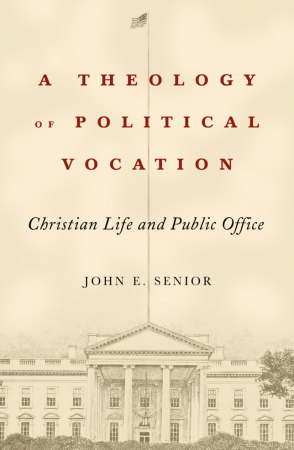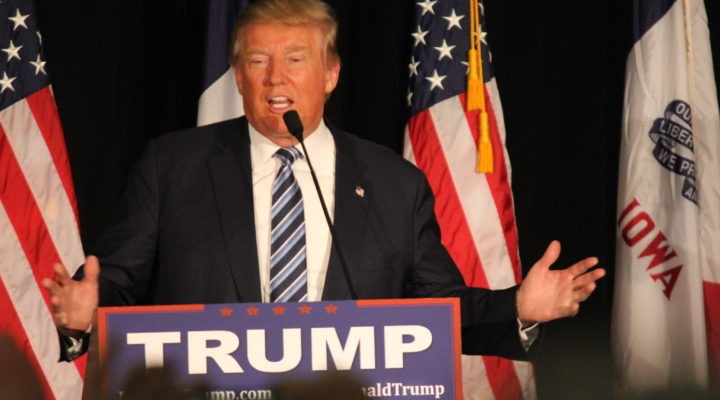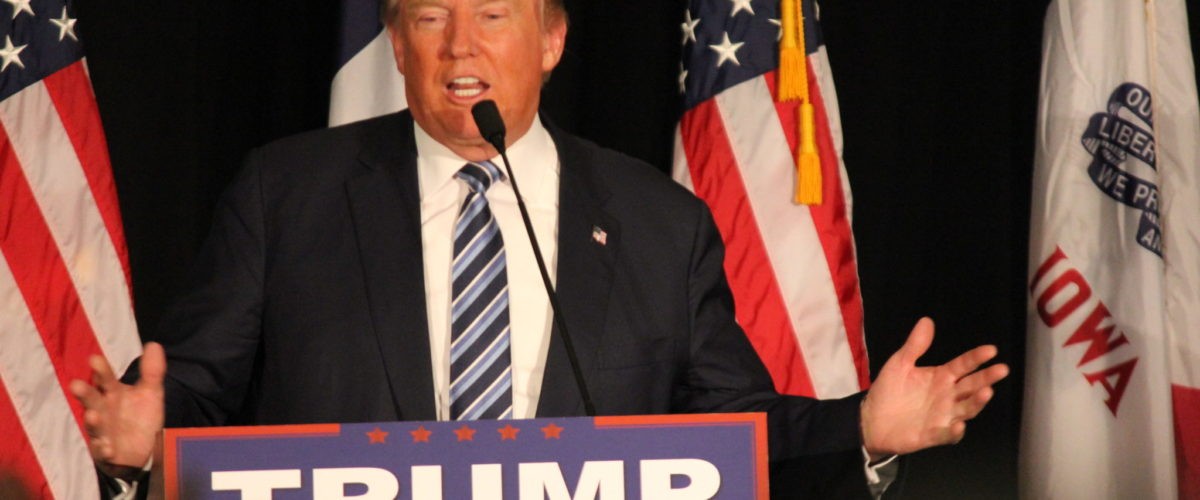Last fall, Wake Forest School of Divinity scholar John Senior celebrated the release of his first book, which examines the moral complexities that shape how politicians govern.
The book also proposes that those who govern should view their positions as vocations to be carried out in service of society and God.
But if Senior were writing the book now, he said March 3, he would expand it to include the high-drama of the 2016 presidential campaign.
 And that means talking about Republican presidential candidate Donald Trump.
And that means talking about Republican presidential candidate Donald Trump.
“I would add a chapter about fear and insecurity,” said Senior, assistant teaching professor and director of the art of ministry program at Wake Divinity School.
The chapter would focus on how those corrosive emotions not only propelled Trump to a string of primary victories but how they may influence Trump’s governing style if elected.
“The political emotions that seem to be dominant in our campaign now are fear and insecurity. ‘Make America Great Again’ is a shorthand for a number of reasons why Americans should be afraid of other people, like immigrants.”
The Trump campaign maintains that people who have had power and privilege should be afraid they are going to lose it, he said.
Evangelicals are right up there in that mix, especially after years of declining church memberships and cultural influence.
“They are insecure about about their power, so it’s easier for them to turn to a guy who doesn’t know the front of the Bible from the back … and who is talking about the insecurity that a lot of white Americans are feeling.”
‘A gospel problem’
Senior’s comments come as a growing number of observers, inside and out of American evangelicalism, are questioning and criticizing conservative Christians who support Trump.
The chairman of Liberty University’s board of trustees this week blasted school President Jerry Falwell Jr. for his endorsement of the billionaire businessman and television reality show star.
In a Feb. 29 editorial, the Christian Post labeled Trump a “scam” and urged Christians to back away from his candidacy. One of the writers of the piece was Executive Editor Richard Land.

John Senior
Russell Moore, president of the Southern Baptist Convention’s Ethics and Religious Liberty Commission, has long been on record opposing Trump’s candidacy and Christian support for it.
In December, Moore lashed out at Trump for calling for a total ban of Muslims from entering the United States. In a Washington Post op-ed published last month, he described evangelical support for Trump “a gospel problem.”
Others have taken note.
In a Feb. 23 article in The Atlantic, Robert Jones concludes that Christian support for Trump may spell the end of their moral claims in politics.
“Trump’s success has demonstrated that the conventional mode of thinking about white evangelical voters as ‘values voters’ is no longer helpful, if it ever was,” Jones wrote.
“The Trump revelation is that white evangelicals have become ‘nostalgia voters:’ a culturally and economically disaffected group that is anxious to hold onto a white, conservative Christian culture that is passing from the scene,” Jones said in “How ‘Values Voters’ Became ‘Nostalgia Voters.’”
‘Maybe he is a maniac’
Senior said the issue is discerning the difference between a politician’s campaign mode and how he or she governs.
It’s common for politicians to have one style while campaigning and another in governing.
“They are insecure about about their power, so it’s easier for them to turn to a guy who doesn’t know the front of the Bible from the back … and who is talking about the insecurity that a lot of white Americans are feeling.”
“Campaigning requires politicians to make more absolute claims, to be more unyielding and uncompromising.”
However, if politicians viewed themselves as fulfilling a vocation, it would help them better negotiate the complexities that exist once in office, he said.
“With vocation, the work is not our work, it’s God’s work. It’s work for the common good.”
Current trends don’t bode well for that aspiration. Some members of Congress have adopted an approach to governing that is the same as campaigning — promoting or blocking legislation based on whether it contributes to their re-election.
“It’s about how do we hold onto power rather than how do we govern with people we disagree with?” Senior said. “And that has become the norm.”
Will it be any different if Trump becomes president? Senior said it’s hard to tell.
“I think he has the skill set to compromise — I take it that’s what he built his business career on.
“Everything from his background suggests he is much more of a moderate figure than he is pitching himself to be in his campaign. But maybe he is a maniac.”


